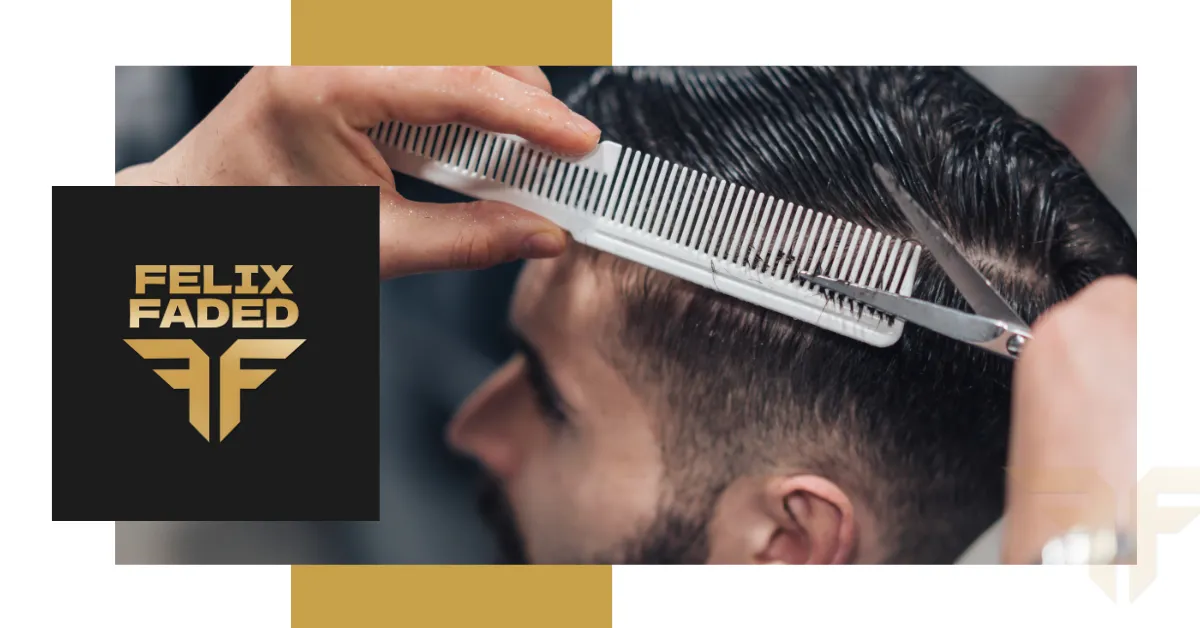
Troubleshooting Common Haircut Mistakes: Pro Barber Fixes & Prevention
From uneven fades and patchy layers to “oops” moments behind the chair—every barber faces classic slip-ups. Here’s how to spot, fix, and avoid them for flawless results every time.
1. Recognise the Most Common Haircut Mistakes
a. Uneven Fades & Visible Lines
What it looks like: Demarcation lines between clipper lengths, patchy sides, or abrupt transitions.
Why it happens: Rushing, skipping guard sizes, or inconsistent fading technique.
b. Patchy or Uneven Layers
What it looks like: Choppy, disconnected sections; “holes” in the cut.
Why it happens: Pulling hair at the wrong angles, not using guides, or cutting too much at once.
c. Inconsistent Length or Missed Spots
What it looks like: One side longer/shorter, stray tufts missed at the crown or neckline.
Why it happens: Lack of cross-checking, working in poor light, or not using a mirror for the back.
d. Cutting Hair Too Short
What it looks like: Client panic, uneven proportions, exposed scalp.
Why it happens: Overconfidence, cutting wet hair too short, not measuring before you snip.
e. Bad Blending Around Beard/Sideburns
What it looks like: Unnatural transitions, abrupt stops, or harsh edges.
Why it happens: Not tapering sideburns or beard length, wrong guard size, or skipping blending tools.
2. How to Fix the Most Common Haircut Mistakes
A. Fixing Uneven Fades & Lines
Assess in Natural Light: Use two mirrors or take photos to spot harsh lines and uneven areas.
Re-establish Guidelines: If needed, raise the fade line with your lowest guard and start blending upwards.
Blend Gradually: Move up guard sizes incrementally (#0.5, #1, #1.5, #2, etc.). Use a flick-out motion to avoid new lines.
Clipper-Over-Comb: For stubborn lines, use the comb to lift the hair and blend with the clipper for a softer transition.
Check from All Angles: Use a fade brush and mirror combo for symmetry and balance.

B. Blending Patchy or Uneven Layers
Locate the Problem Area: Identify weight lines or “holes” by combing hair straight up.
Point Cutting for Texture: Use scissors with a point-cutting method to soften blunt lines—cut at an angle, not straight
Blend by Section: Take small sections, check for evenness, and connect layers using comb guides.
Avoid Over-Cutting: If a “hole” is too short, blend surrounding areas and let it grow out rather than over-correcting.

C. Correcting Inconsistent Lengths & Patchiness
Always cross-check sides and back from multiple angles.
Trim cautiously, especially on wet hair (it shrinks when dry!).
For missed tufts or long spots, go over the entire head in small, overlapping sections using comb and scissors for accuracy.
D. Cleaning Up Around Beard and Sideburns
Use a trimmer or detail clipper to blend sideburns into the beard.
Always step back and check both sides for symmetry.
Use a beard shaping tool or comb to help get clean, precise transitions.

3. Pro Tips to Prevent Rookie Barber Mistakes
“Less is More”: Cut a little at a time—you can always take more off, but you can’t put it back.
Sharp Tools Only: Dull clippers/scissors cause tugging, unevenness, and frizz.
Fade Like a Pro: Overlap guard lengths for smooth blends; use taper levers for micro-adjustments.
Guide, Don’t Guess: Always establish clean guidelines for every section or layer.
Check in Good Light: Bright, natural lighting reveals missed spots and inconsistencies.
Breaks & Breathers: Step back often to evaluate your progress and spot mistakes early.
4. When to Call in a Pro
If you’ve tried re-blending and things only get worse—don’t be afraid to book with an experienced barber for a rescue cut. Pros can reset lines, reconnect layers, and give you advice for better at-home care or next time in the shop.
5. Reliable Sources for Visual Guides & More Help
YouTube:
Final Word from Felix
Mistakes are part of the learning curve—even for experienced barbers. With a step-by-step approach, a keen eye for detail, and the right pro techniques, every error becomes a chance to get sharper, faster, and more confident behind the chair. Don’t panic—just diagnose, blend, and level up!
Want more technical tutorials or have a specific haircut struggle? Drop your questions and get custom troubleshooting advice in the next blog!
